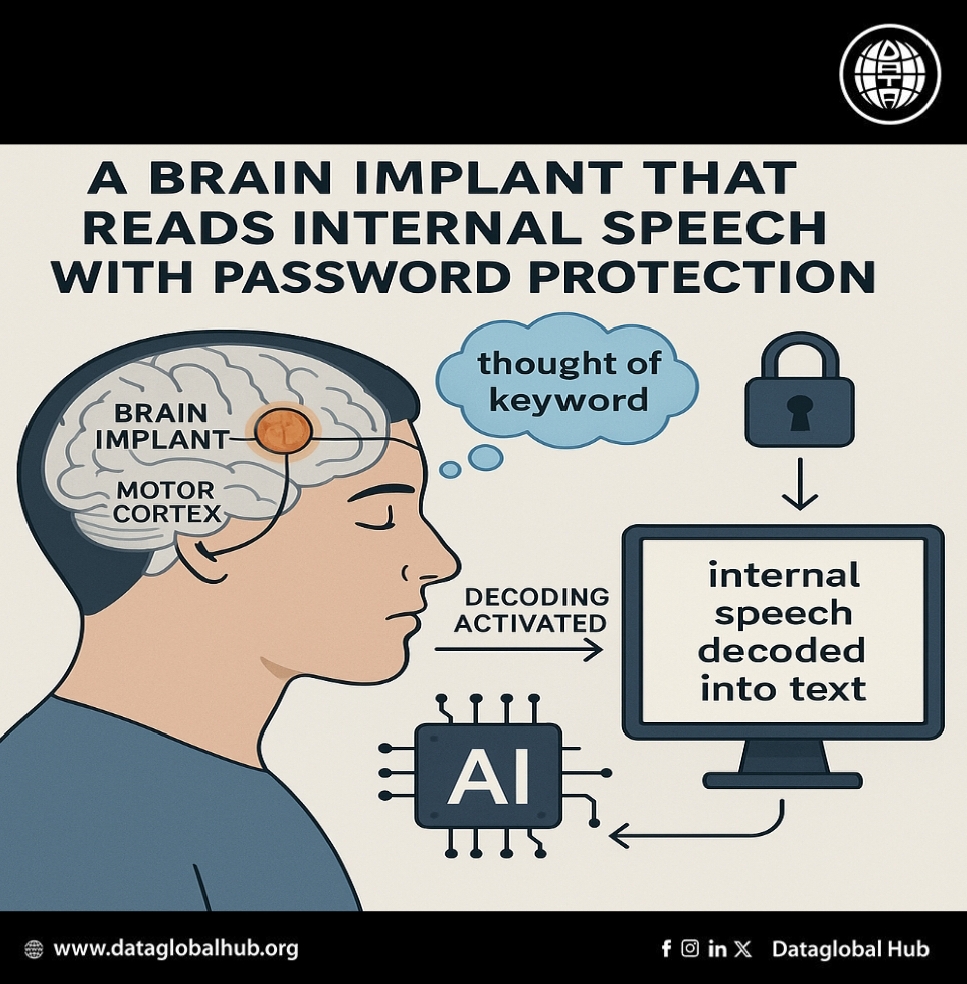
A Brain Implant That Reads Internal Speech With Password Protection
Translate this article
A brain computer interface (BCI) has been developed that can decode a person’s imagined speech into text, with accuracy reaching up to 74%. The device also includes a safeguard to protect users’ privacy by requiring a preset mental password before it begins decoding.
The study, published in Cell in August, showed that the system only activated when participants thought of a keyword (password). This ensured that sentences users did not wish to share remained private.
Four participants who have difficulty speaking l, three living with motor neuron disease and one recovering from a stroke, took part in the study. Microelectrodes placed in the motor cortex recorded brain activity. The signals linked to attempted speech and internal speech originated in the same region and appeared similar, though those for internal speech were weaker.
The researchers trained artificial-intelligence models to detect phonemes, the smallest units of speech, from these recordings. Using a language model with a 125,000-word vocabulary, the system assembled phonemes into words and sentences in real time. In tests, it correctly interpreted up to 74% of imagined sentences.
A neural engineer at the Feinstein Institutes for Medical Research who was not involved in the study, described the work as a “technically impressive and meaningful step” toward decoding internal speech. She added that the password mechanism offers a straightforward way to protect user privacy a crucial requirement for real-world use.
The researchers note that while accuracy levels still leave room for improvement, the study demonstrates an important advance toward supporting individuals with speech impairments in a secure and controlled way.
About the Author

Eva Rossi
Eva Rossi is an AI news correspondent from Italy.
Recent Articles
Subscribe to Newsletter
Enter your email address to register to our newsletter subscription!